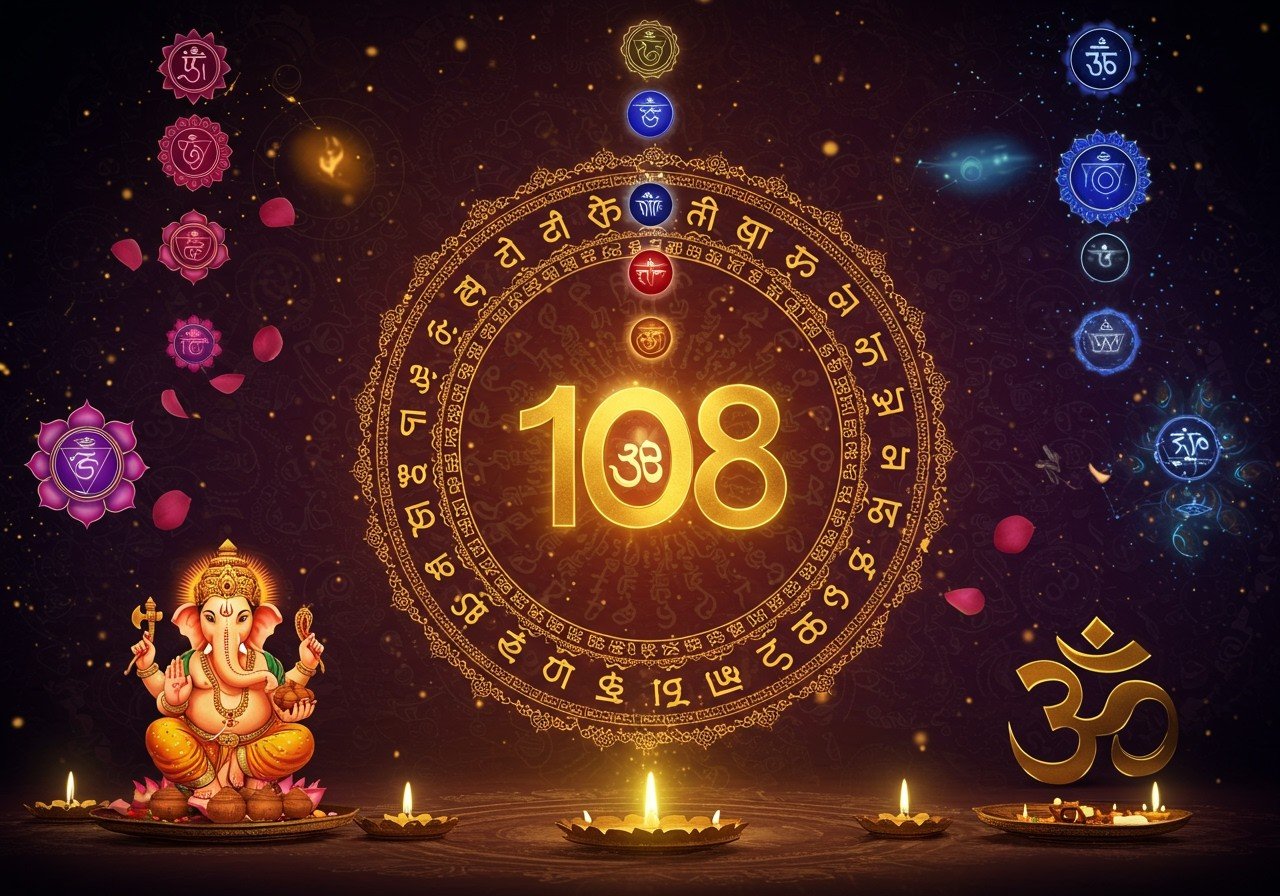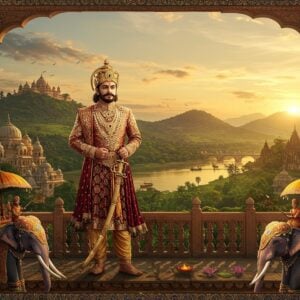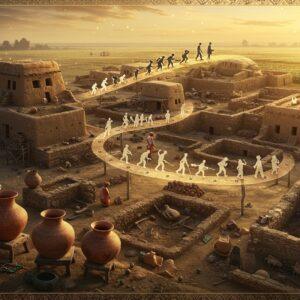Unveiling the Mystical Meanings of Numbers in Hindu Mythology

In Hindu mythology, numbers transcend mere quantification; they possess profound symbolic and mystical significance, deeply interwoven into spiritual, philosophical, and daily life. These numerical symbols resonate through religious ceremonies, rituals, astronomy, and literary compositions, representing divinities and their energies. Let’s delve into the meanings of some key numbers in Hinduism.
The Significance of One, Three, Five, Seven, and Nine
The number one embodies unity and is associated with Brahman, the ultimate reality. It signifies singularity and the origin of creation, often linked with Lord Shiva, representing unchanging truth.
Three represents the Trimurti – Brahma, Vishnu, and Shiva – embodying creation, preservation, and destruction. It also mirrors the three gunas – sattva, rajas, and tamas – and is integral to cosmic functions and rituals.
Five symbolizes the Panchabhuta, the five elements – earth, water, fire, air, and ether – fundamental to Hindu cosmology. It also connects to the five senses and appears in deities like the five-headed Lord Shiva and the Panchakosha.
Seven resonates with spiritual enlightenment, represented by the seven chakras. Ancient texts mention seven sages (Saptarishi) and seven holy cities (Sapta Puri). Wedding rituals incorporate seven steps (Saptapadi), symbolizing lifelong partnership.
Nine embodies completion and fulfillment, deeply intertwined with spiritual practices. The Navagraha, nine celestial bodies, hold astrological importance. Navaratri celebrates nine forms of Goddess Durga, signifying triumph over evil.
Celebrate Navratri with beautiful rangolis.
Exploring the Symbolism of Twelve and One Hundred Eight
Twelve symbolizes cosmic order and cycles, reflected in the twelve zodiac signs (Rashis), twelve Adityas (solar deities), and twelve Jyotirlingas (sacred shrines of Lord Shiva). The twelve months of the Hindu lunar calendar structure religious festivals and agricultural activities.
One hundred eight (108) is revered for its representation of completeness and unity. Malas (prayer beads) often have 108 beads for mantra repetition. Astronomically, the Sun’s diameter multiplied by 108 approximates the Sun-Earth distance.
How Poojn.in Supports Your Spiritual Journey
Want to enhance your spiritual practice?
Poojn.in provides a wide array of puja items aligned with these sacred numerical concepts. We offer single diya sets and individual kalash for rituals involving the number one, representing supreme consciousness.
For ceremonies involving the number five, our Panch-tattva sets include items for each of the five elements – earth, water, fire, air, and ether. We honor the number eight with Ashtalakshmi puja sets.
Our Navgraha puja sets cater to rituals involving the number nine. We also offer sets of 108 items like lotus seeds and rudraksha malas, acknowledging the spiritual significance of 108. For Solah-somvar vrat, explore our specialized puja kits.
Find authentic Rudraksha malas and other puja items at Poojn.in.
All our products are carefully sourced and authenticated for ritual purity, accompanied by detailed descriptions explaining their significance. Our customer service team is available to guide you in selecting appropriate items for your ceremonies. Visit Poojn.in to explore our complete collection.
Embracing the Wisdom of Numbers
Numbers in Hindu mythology are more than just figures; they are portals to deeper spiritual and cosmic understanding. Exploring their meanings enriches our rituals, beliefs, and daily lives. Whether it’s the nine celestial influences, the twelve-month cycle aligned with nature, or the 108 beads guiding prayers, each number holds a sacred story. Embrace these symbols, and let them illuminate your path, bridging ancient traditions with modern living.
Frequently Asked Questions
What is the significance of the number 3 in Hindu mythology? The number 3 represents the Trimurti (Brahma, Vishnu, and Shiva), responsible for creation, preservation, and destruction. It also symbolizes the three gunas (sattva, rajas, and tamas), essential qualities influencing cosmic functions and individual characteristics. Find products related to the Trimurti on Poojn.in.
Why is 108 considered sacred? 108 combines spiritual concepts (1 for unity, 0 for nothingness, 8 for infinity), representing the universe’s wholeness. It’s commonly used in prayer beads (malas) and mantra repetitions for enhanced spiritual focus. Shop for 108-bead malas and other spiritual products on Poojn.in.
How is the number 7 used in Hindu ceremonies? Seven appears in rituals like weddings, where seven steps around the sacred fire symbolize seven marital promises. It also represents the seven chakras, energy centers in the body, and the seven sages (Saptarishi) revered in Hindu tradition.
What does the number 9 symbolize? Nine symbolizes completion and fulfillment, linked to the nine forms of Goddess Durga celebrated during Navaratri. It also represents the Navagraha, nine celestial bodies influencing astrology.
Is there a special meaning behind the number 1? One symbolizes unity and the ultimate reality, Brahman. It represents the beginning of creation and is often associated with Lord Shiva, signifying unchanging truth.
Why does 5 appear frequently in Hindu stories? Five represents the Panchabhuta (five elements: earth, water, fire, air, and ether), crucial in Hindu cosmology and rituals. It also symbolizes the five senses, playing a role in Hindu philosophy. You can find Panch-tattva sets and other related items on Poojn.in.
What is the role of the number 4 in Hindu mythology? Four represents stability and order, symbolized by the four Vedas, four stages of life (ashramas), and four directions. It signifies balance and structure within the universe.


